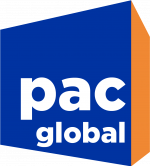Course Overview
Sustainability – Packaging Optimization, Life Cycle Approach, Material Recovery Facility, Circular Economy, Consumer Trends, Setting Up for Success
This workshop-based packaging design course provides the tools and insights to deliver better packaging solutions based on taking a life cycle approach.
Register for Full Course or individual modules.
Course Details & Pricing
1. Intro to Packaging Circularity/Sustainability – September 10
2. Elimination, Food Loss & Waste, Safety, Quality and Compliance – October 1
3. Reusable & Refillable Packaging – October 29
4. Recycling (mechanical, advanced, AI, robotics, flexibles) & EPR – November 19
5. Recycled Content, Alternative Materials (biobased, compostable) – November 26
6. Measuring Sustainability: LCA, PIP360, Managing Trade-offs – December 10
Courses are non-refundable, however transferrable up to one (1) year.
Price
Learning objectives
- Business case for sustainability
- Life cycle assessment and approach
- Optimized packaging design for waste reduction
- Recycling challenges at a Material Recovery Facility (MRF)
- Applying circular economy concepts
Who should attend?
Anyone working within the packaging value chain from designers, developers and decision makers to raw material suppliers, manufacturers, brand owners and retailers to waste management, re-processors and municipalities.
Course Topics
1. Introduction to Packaging Sustainability and Circularity
September 10, 2024
Introduction to a holistic, practical framework for making packaging sustainability decisions:
- Fundamental role of packaging
- Life cycle thinking, sustainable materials management, circular economy, sustainability as a blend of economic, environmental and social considerations
- Packaging’s impact in overall product-packaging supply chain
- Package optimization
- Managing trade-offs
Brief Introduction to the ecosystem of Packaging Sustainability and some Key Organization Initiatives:
- Multi-stakeholder initiatives (e.g., Plastics Pacts including the Canada Plastics Pact);
- Industry-led initiatives (e.g., Consumer Goods Forum Golden Design Rules for Plastic Packaging, Design Guides);
- Introduction to LCA including assessment and evaluation;
- Materials testing for recyclability and compostability; and
- Recommended reference resources.
2. Elimination and Reduction, Packaging & Food Waste;
Safety, Quality and Compliance
October 1, 2024
Introduction to direct and innovative packaging elimination, and packaging reduction (i.e., lightweighting), illustrated with in-market use-cases.
Builds on idea of package ‘optimization’ to:
- address critical tradeoffs between the benefits of elimination/reduction and costs of product loss/waste;
- focus on food packaging, including its role in preventing food waste and related upstream environmental impacts.
Introduction to the environmental impact of food contact packaging materials as it relates to safety, quality, and compliance to regulations.
3. Reusable & Refillable Packaging
October 29, 2024
Introduction to globally-recognized definitions and types of “reusable packaging”:
- clarify distinctions between reuse, return and refill;
- in-market use-cases which illustrate the different types, and help demonstrate key aspects of viable reuse at scale.
With reference to current global research and practice, introduction to key aspects of viable reuse at scale:
- preferred market segments and system types (e.g., open/closed);
- key metrics and concepts (e.g., actual return rates, break-even point, role of comparative LCA);
- role of package and system standardization;
- role of collaboration.
Brief introduction to the global ecosystem of reusable packaging organizations, initiatives and resources.
Brief introduction to relevant regulation in Canada, and select global jurisdictions.
4. Recycling & Extended Producer Responsibility (EPR)
November 19, 2024
- Extended Producer Responsibility (EPR) in Canada and USA
- What is happening in the four states where EPR has been introduced
- What is happening with the move to full EPR in Alberta, Manitoba, Ontario, Quebec, New Brunswick and Nova Scotia
- Single use plastics and other bans
- Latest on Canadian regulation around plastics being toxic
- Labelling Regulations
- What do we do with the mobius loop? Pros and Cons
- Mechanical Recycling Capabilities
- Advances in mechanical recycling technologies, robotics
- Chemical Recycling at scale in North America
- Chemical recycling for recycled content vs. fuel production
- Digital Watermarking, AI?
- Improving recycling capture through advances in the industry
- Brief introduction to the ecosystem of relevant organizations, initiatives and resources (e.g., PRFLEX, CEFLEX etc.)
5. Recycled Content and Alternative Materials
November 26, 2024
- Basic definitions of recycled content (PCR, PIR), and related processes (e.g., mass-balance);
- In-market use-cases which illustrate the use of recycled content in various applications, including food-contact and B2B;
- Summary of common challenges and opportunities, including the role of certification.
- Brief introduction to relevant regulation in Canada, and select global jurisdictions.
- Health Canada and FDA-approval, Letter-of-No-Objection (LONO)
- Brief introduction to the ecosystem of relevant organizations, initiatives and resources.
Introduction to globally-recognized definitions and types of “alternative materials”:
- Clarify distinctions between important terms such as biobased, compostable (industrial/home), biodegradable, bioplastics.
- In-market use-cases which illustrate the different types
- Summary of relevant challenges (e.g., infrastructure) and opportunities, including considerations for sourcing feedstock and certification for end-of-life pathways
- Brief introduction to the global ecosystem of relevant organizations, initiatives and resources.
- Brief introduction to relevant regulation in Canada, and select global jurisdictions.
6. Measuring Sustainability: Life-cycle Assessment (LCA), PIP360;
Managing Trade-offs & Making Decisions
December 10, 2024
Introduction to the practice of Life Cycle Assessment (LCA):
- types (e.g., streamlined/full; cradle-to-grave), relevant ISO standards;
- basic components (scope to interpretation), and impact categories (global warming potential, energy demand, water consumption etc.)
- time and cost
Brief summary of benefits and limitations:
- identification of impact “hotspots” to help prioritize investment;
- quantifiable comparative analysis in categories that reflect globally-recognized sustainability objectives (e.g., carbon reductions, “net zero” etc.).
- critical role of underlying assumptions and interpretation of findings;
- value of data transparency, peer-review and “meta” analyses.
Brief Introduction to the ecosystem of relevant organizations and resources (e.g., packaging LCA providers, open-source databases).
Introduction to PAC Global PIP360 Packaging Circularity Benchmarking Tool
- Provides a score out of 360
- Measures against recycling rate, recycled content, packaging intensity, source reduction, biobased (for plastic), FSC (for fibre), certified compostable and reuse
- Provides guidance against the GDRs
- Outlines where a package is offside and where to improve
- GHG emissions in gr/pkg and gr/gr of package
- Based on US EPA WARM model
- Estimate of EPR fees by province
PAC Packaging Circularity Course Lecturers
The PAC Packaging Circularity Course is developed and presented by industry professionals, ensuring you get the most up to date information while advancing your career.
-
 Dan Lantz, DBA, EP, MCIWM PAC NEXT Director PAC Global
Dan Lantz, DBA, EP, MCIWM PAC NEXT Director PAC GlobalDan has more than 30 years of experience in end of life materials management. He worked in recycling operations for six years. He worked with Stewardship Ontario in the design of the Blue Box Program Plan and in the design and operation of the current BC-wide EPR-based recycling program. Dan teaches the Packaging Circularity course for PAC Global. Dan was the strategic advisor to the Canadian Plastics Industry Association for 30 years. Dan has written and presented over 100 papers/presentations on waste diversion. Dan has specialist knowledge of EPR and stewardship, package design optimization and recycling program and facility design and operation.
-
 Andrew Macdonald PAC NEXT Program Manager PAC Global
Andrew Macdonald PAC NEXT Program Manager PAC GlobalAndrew Macdonald manages PAC Global’s packaging sustainability and circularity program – PAC NEXT. As the lead for PAC Global on reusable packaging, Andrew tests models, tracks innovation, reviews research, summarizes findings via the PAC blog, and has a growing network of practitioners active in this space.



